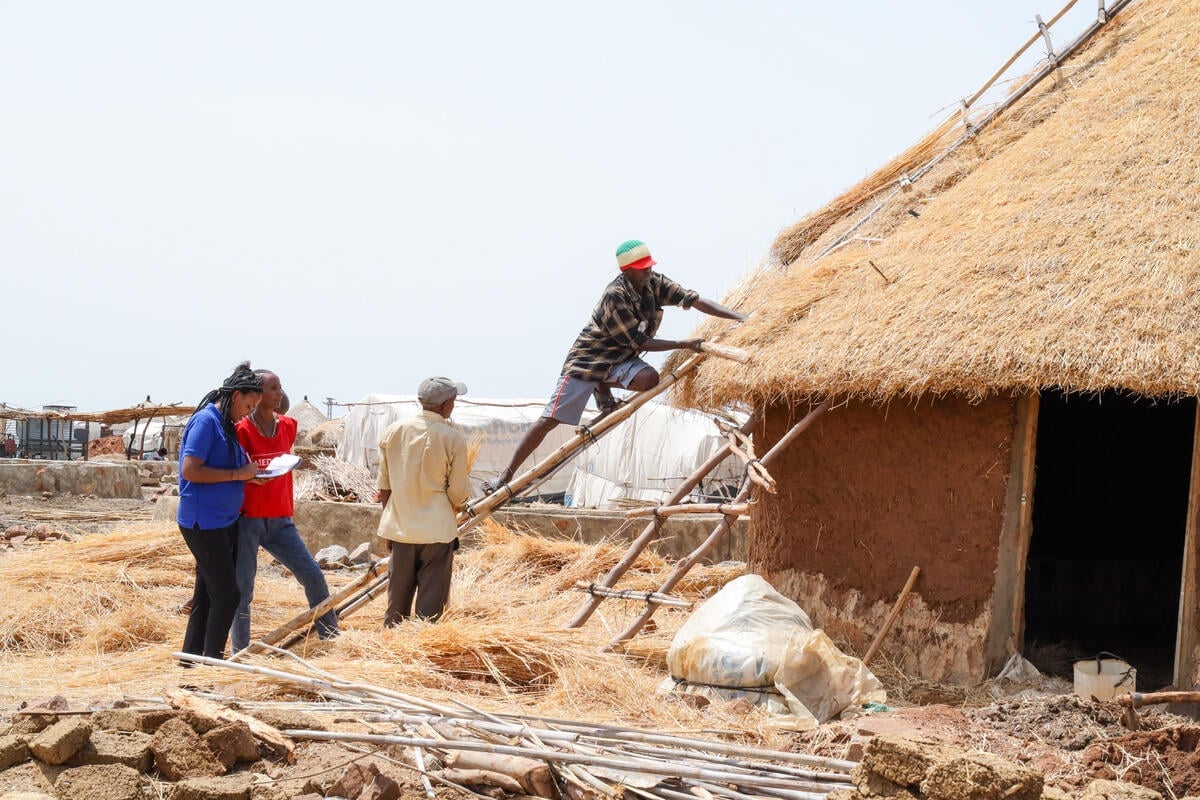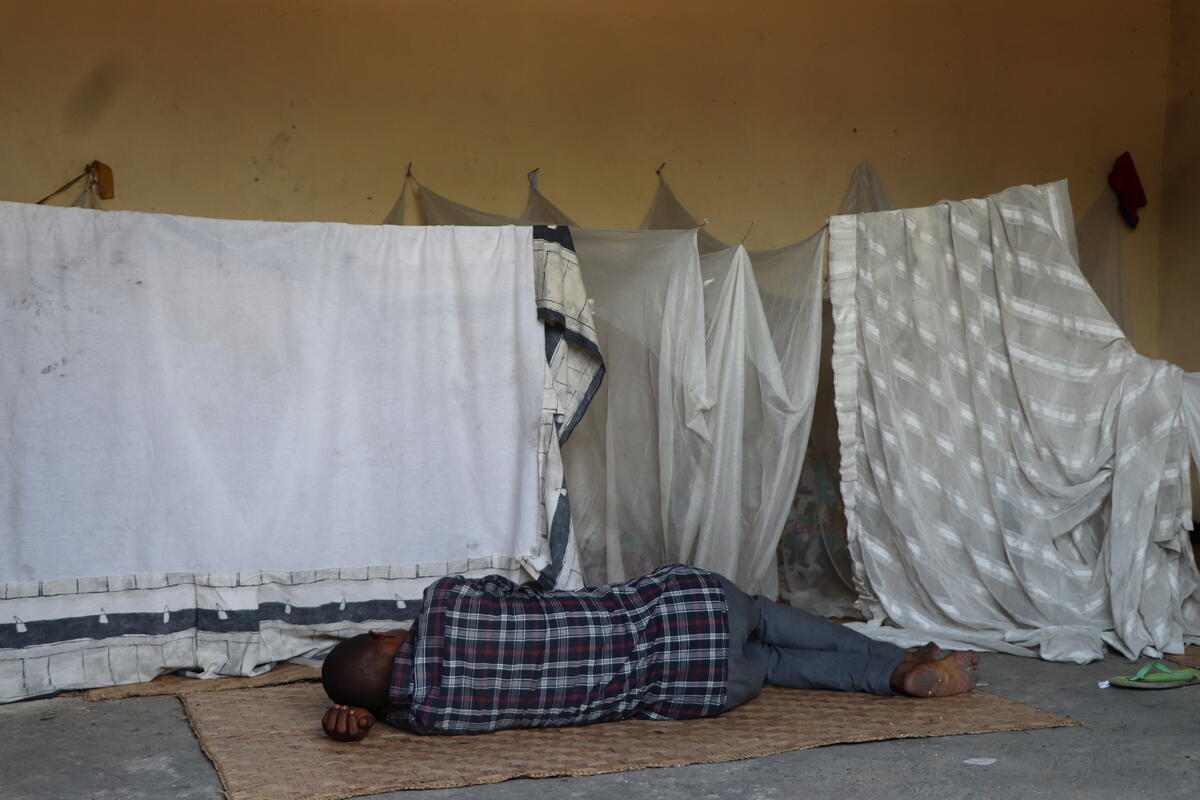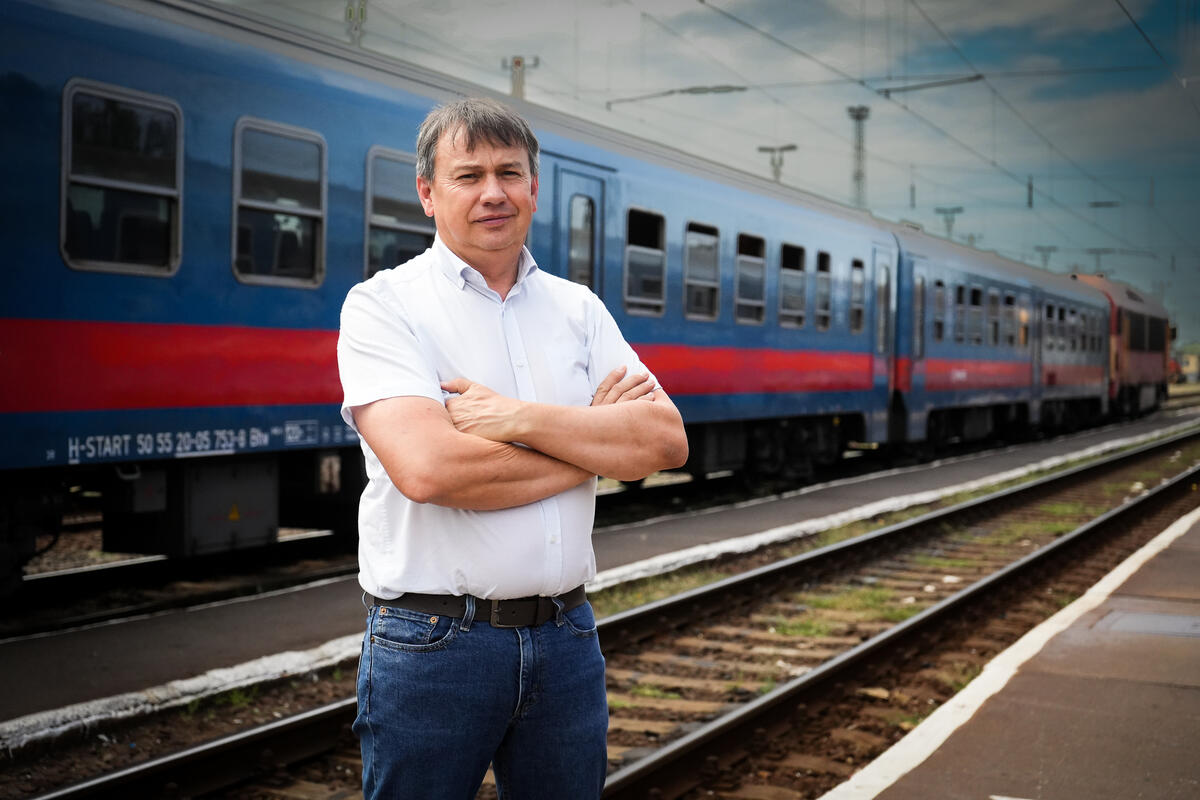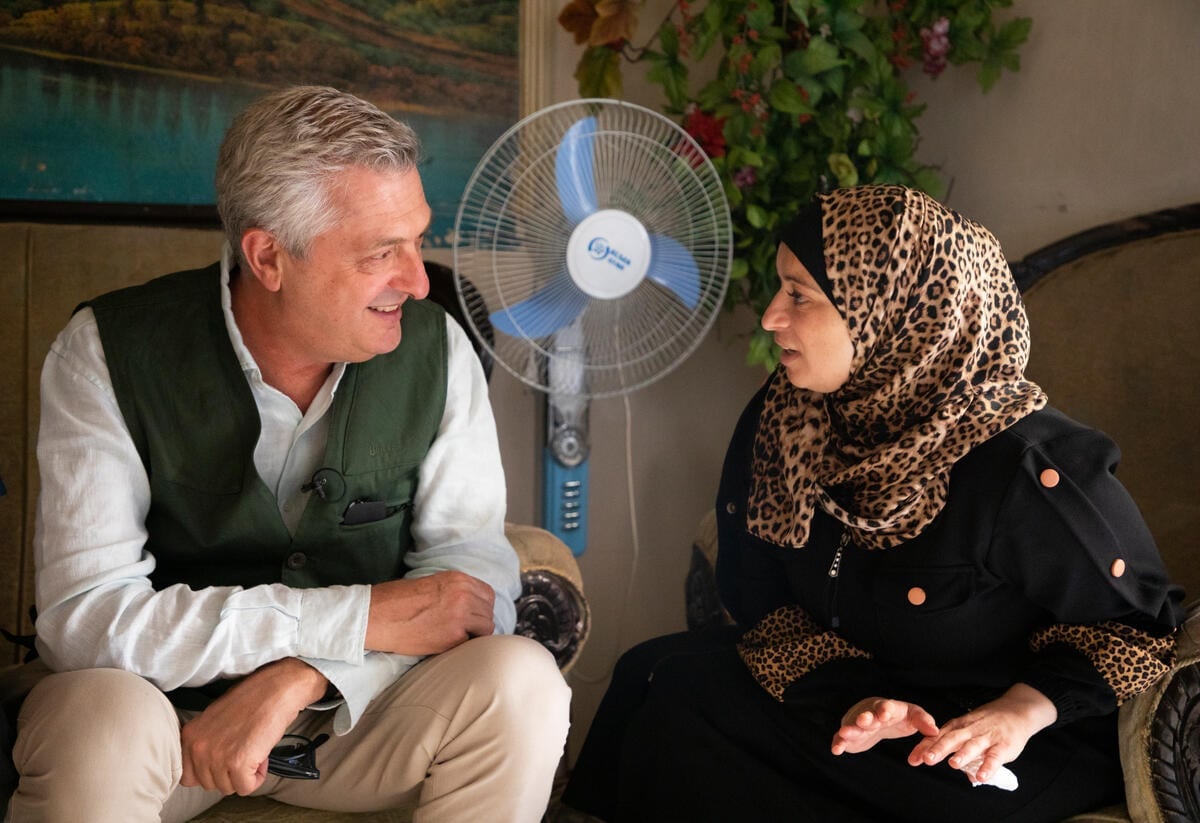Urgent action needed to provide shelter for refugees
Urgent action needed to provide shelter for refugees

GENEVA, May 18 (UNHCR) – Running from violence in Burundi, Jacqueline and her family are seeking safety in Tanzania, where seasonal rains fall in sheets. Their greatest need is plastic sheeting to keep them dry.
Penniless and on the streets of southern Mexico after fleeing raging gang violence in her native El Salvador, Ada and her three-year-old son need a room where they can sleep, eat together and plan their next move.
Facing a bitter winter chill thousands of miles away in Lebanon’s Bekaa Valley after escaping war in Syria, Hayel and his three young children need cash and other help to stay warm, dry and fed in their temporary shelter.
“What I care about the most is to keep my family under one roof where the children can be warm, where they can eat, where they can study and be safe,” he says.
“What I care about the most is to keep my family under one roof where the children can be warm, where they can eat, where they can study and be safe.”
–Hayel, Syrian refugee
Jacqueline, Ada and Hayel and their families are among a record number of people worldwide driven from their homes by wars and persecution. For them, a proper shelter – whether a tent, a temporary shelter or a house – is the basic building block for surviving and recovering from the physical and mental effects of violence.
Today, UNHCR, the UN Refugee Agency, is launching a new global campaign to find decent shelter for the refugees under its care. The “Nobody Left Outside” campaign aims to help those struggling to get by in grossly inadequate, and often dangerously squalid dwellings, where their lives, dignity and futures may be at risk.
“Shelter is the foundation stone for refugees to survive and recover, and should be considered a non-negotiable human right,” said Filippo Grandi, the UN High Commissioner for Refugees. “As we tackle worldwide displacement on a level not seen since World War II, no refugee should be left outside.”
Without a massive stepping up and widening of global support, UNHCR warns, millions of people fleeing war and persecution face homelessness or inadequate housing in countries from Lebanon and Mexico to Tanzania.
The Nobody Left Outside campaign aims to raise private funds to provide and improve shelter for 2 million refugees like Hayel, Jaqueline and Ada by 2018, or more than one in every 10 people under UNHCR’s care.
Providing shelter on a global scale is a massive logistical undertaking. Every year, UNHCR purchases 70,000 tents and more than 2 million tarpaulins – the iconic plastic sheets which have come to symbolize the response to humanitarian emergencies. Outside of camps, refugees rely on UNHCR support to find housing and pay the rent in towns and cities across dozens of countries bordering conflict zones.
These operations are expected to cost US$724 million in 2016. Yet only US$158 million is currently available, a dramatic half-billion-dollar shortfall which threatens to leave millions of men, women and children without adequate shelter and unable to begin rebuilding their lives.
The Nobody Left Outside campaign is asking private donors and enterprises to get much more involved. The private sector is an increasingly important donor to UNHCR, contributing more than eight per cent of the organization’s overall income in 2015.
For those in desperate need, that help is nothing less than a lifeline. Fragile as his family’s temporary wooden shack is, Hayel says it is “basically home,” allowing him and his wife, Wisal, to be together and focus on raising their three young children.
Half a world away in Tanzania, Jacqueline says her shelter has given her husband, Joseph, and their kids – one seven years old, the other and just four months – the privacy to “be a family and have time to ourselves” until they can build a more permanent mud brick home.
For Ada, a room at a shelter in southern Mexico has simply got her and her three-year-old son Brian off the street, while they claim asylum. “It’s important to have a place to rest, to eat,” she says. “It’s too cold for mothers to be sleeping out on the streets with their children.”














